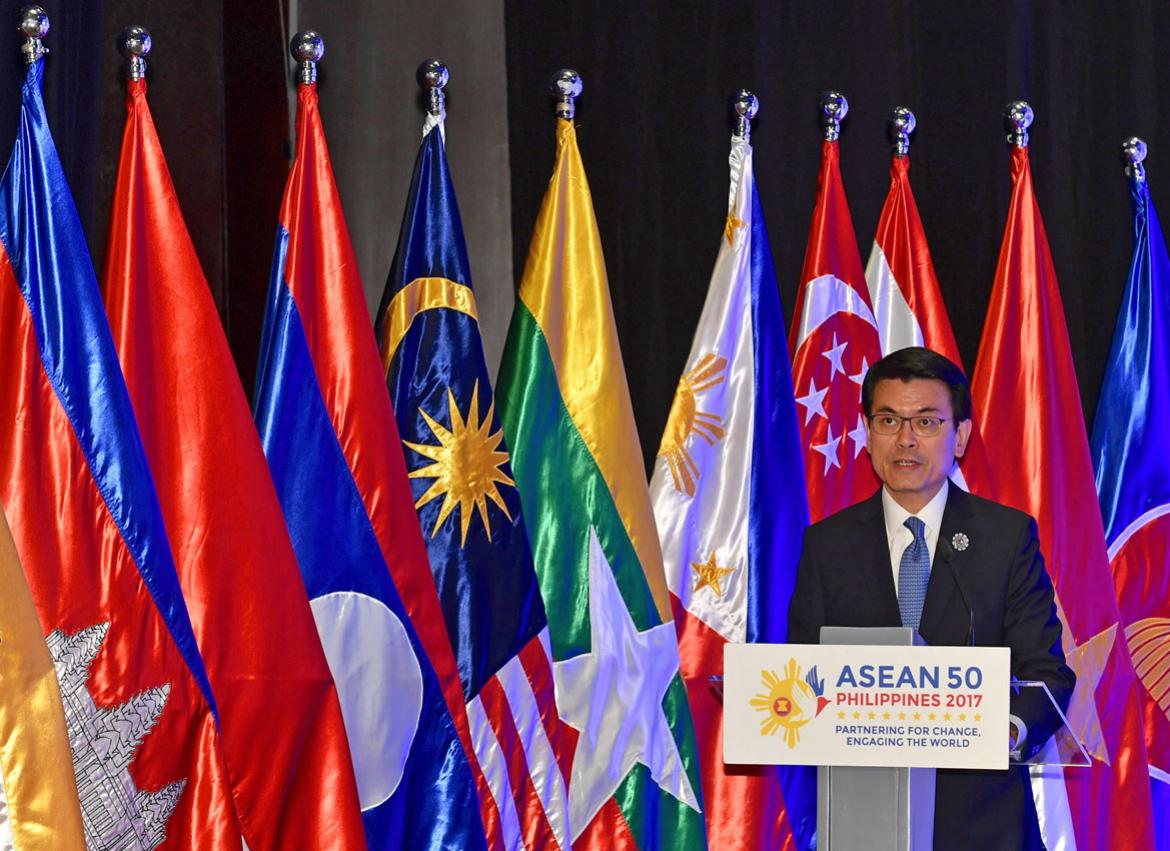ASEAN-Hong Kong SAR – Free Trade Agreement: A win-win for business
A new Free Trade Agreement (FTA) between Hong Kong and the Association of Southeast Asian Nations (ASEAN) and a related Investment Agreement are set to create fresh opportunities for business collaboration between Hong Kong and Myanmar.
“These two agreements will provide a more competitive platform for companies throughout the ASEAN region to do business in Hong Kong and to reach new markets, particularly those in Mainland China and along the routes covered by the far-reaching Belt and Road Initiative,” said Edward Yau, Hong Kong’s Secretary for Commerce and Economic Development.
Mr Yau added that the agreements are very comprehensive, covering trade in goods and services, investment, economic and technical co-operation, dispute settlement mechanism and other related areas.
“They will bring legal certainty and better market access in respect of trade in goods and services, as well as enhanced protection of investments, thereby creating new business opportunities and further enhancing trade and investment flows between Hong Kong and countries in the ASEAN region.”
Key features of the ASEAN-Hong Kong FTA and Investment Agreement include:
- Enhanced market access and non-discriminatory treatment for trade in services
- Enhanced protection of investments
- Preferential tariffs on goods
- Facilitating entry and stay for business travellers
- Transparent and fair domestic regulations amongst all parties
- A regular review mechanism which paves the way for future negotiations of improvements to market access commitments to facilitate trade in services.
Under the FTA, Hong Kong commits to granting tariff free access to all products originating from ASEAN Member States when the agreement takes effect onJanuary 1, 2019 at the earliest. At the same time, ASEAN Member States will reduce or eliminate their tariffs for Hong Kong’s originating products.

Strong bilateral ties
Although the value of trade between Myanmar and Hong Kong is at a relatively low level, it is growing rapidly. In the first nine months of 2017, our bilateral merchandise trade expanded 49.0 per cent year-on-year to reach US$292 million. During the same period, Hong Kong’s total exports to Myanmar increased by 57.7 per cent while imports from Myanmar rose 26.2 per cent.
Launched in 2015, the Hong Kong Macau and Myanmar Chamber of Commerce & Industry promotes commercial and cultural ties between Myanmar, Hong Kong and Macao and helps to develop business networks and partnerships.
With its advantageous location, advanced infrastructure and world-class services, Hong Kong serves as an effective springboard for companies in Myanmar and throughout the ASEAN region to do business in Mainland China and globally.

“ASEAN is Hong Kong’s second-largest trading partner in merchandise trade and fourth-largest in services trade,” said Mr Yau. “The agreements will not only enhance and strengthen trade and investment flows between Hong Kong and ASEAN, but also boost related economic activities. It will also create business opportunities for Hong Kong enterprises and services providers in ASEAN markets.”
Bilateral merchandise trade between Hong Kong and ASEAN grew by an average of 3.4 per cent annually from 2012 to 2016 to reach US$107.4 billion in 2016. For services, the trade value grew 3.1 per cent from 2011 to 2015, when it reached US$15.6 billion.
“The FTA and Investment Agreement build on the close business relationship between Hong Kong and ASEAN and enhance access to opportunities related to the Belt and Road Initiative,” said Mr Yau.

Belt and Road Initiative
Boosting connectivity
Spearheaded by China, the Belt and Road Initiative aims to promote closer business and social links and reinvigorate trade flows between Asia and Europe as well as the Middle East and Africa. Hong Kong and the entire ASEAN region are strategically located on the Belt and Road, which covers more than 60 countries and accounts for about 35 per cent of global merchandise trade.

Hong Kong-Zhuhai-Macao Bridge
Sitting on the Belt and Road routes, the Guangdong-Hong Kong-Macao Bay Area is a cluster of 11 dynamic cities, including Hong Kong, Macao and nine cities in Guangdong Province. The region covers more than 66 million people and generated a combined gross domestic product of over US$1.3 trillion in 2016. This represents another opportunity to capitalise on Hong Kong’s competitive advantages in connecting Mainland China and ASEAN.

Sharpening Hong Kong’s competitive edge
Hong Kong is renowned for being a free and open economy with a level playing field for all enterprises. The city has been rated as the world’s freest economy for the past 23 years, according to the US-based Heritage Foundation. Hong Kong is also ranked as the world’s most competitive economy for two consecutive years in the Swiss-based IMD World Competitiveness Yearbook.
With a clean and efficient government, low and simple tax system (profits tax capped at 16.5% and salaries tax capped at 15%) and a common law system underpinned by an independent judiciary, Hong Kong has attracted more than 8,200 overseas and Mainland China companies to establish operations in the city.

The ASEAN-Hong Kong FTA and Investment Agreement are expected to further amplify Hong Kong’s advantages as a free, open and vibrant CBD in Asia.
“The agreements will enhance Hong Kong’s competitiveness as a business and investment hub in the region. I would encourage the business community to take a fresh look at the new opportunities opening up for closer collaboration between Hong Kong and Myanmar,” Mr Yau said.
Source: https://www.mmtimes.com/news/asean-hong-kong-sar-free-trade-agreement-win-win-business.html


 English
English




